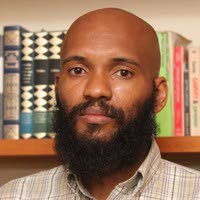Royal wedding, empire and the colonial jumbie (part 2)

TY SALANDY
Part 2
ACROSS THE global south, most countries that were colonised by Britain maintain membership in the Commonwealth of Nations. Also called the “Stolenwealth of Nations,” this organisation is headed symbolically by the British queen. Once every four years, athletes from all these countries participate in the Commonwealth Games, established by the Commonwealth of Nations, and again presided over by the British queen.
It is a travesty that most global south leaders see fit to maintain membership in this colonial organisation, rather than creating an independent global organisation to serve the interests of global south countries and to further decolonisation.
It also reminds us that the structures of domination have survived long past the point of political independence more than 50 years ago.
Let us not forget that in the Caribbean, Jamaica, St Lucia, Barbados, St Vincent and the Grenadines, Antigua, Grenada and St Kitts-Nevis still maintain the queen of England as their symbolic head. Guadeloupe and Martinique are still colonised by France.
In addition, there have been concerns that there are moves to recolonise the Caribbean, given the situation in the former Netherlands Antilles (Bonaire, St Eustatius and Saba), where in 2010 the Netherlands took control and declared them municipalities of the “mother country.” This is a reminder that mental and political decolonisation is an ongoing process.
Scholars such as CLR James, Eric Williams, Joseph Inikori, Walter Rodney and most recently Hilary Beckles have explained the relationship between European colonial nations and their overseas colonies. Williams, in his seminal book Capitalism and Slavery, explained how proceeds from slavery and colonialism were a key part of economic transformation in western Europe.
Beckles develops Williams’ ideas in his Britain’s Black Debt: Reparations for Caribbean Slavery and Native Genocide by going into the archives and tracing how the British royal family, government, the established church, many elite families, and institutions in the private and public sectors all invested in and benefited directly from slavery.
In a lecture titled Britain’s Perfect Caribbean Crime: Ignored Genocide, Faked Emancipation, Insincere Independence, and No Reparations, Beckles explains how the 1833 Emancipation Act defined enslaved Africans as property and so paid slave owners £20 million for the loss of that property.
This history forms part of Caricom’s demands for reparations from Britain, which so far have been met with silence, or in the case of the former UK prime minister David Cameron, a response suggesting that Caribbean leaders “move on from this painful legacy.”
The royal wedding is in itself an urgent reminder of the need for reparations. The extravagant lifestyle of the royal family draws upon ill-gotten gains that have their roots in slavery. The opulent wedding ceremony was also no doubt connected to wealth that came from the subjugation of black and brown bodies during slavery and colonialism.
How many of the diamonds, gold and other precious jewellery that adorn the queen’s crown and the bodies of British nobility were also questionably obtained during this period? How many crimes against humanity sanctioned by the monarchy have to be forgotten to celebrate this wedding?
That the near-white Meghan Markle has a mixed mother does not change the relations of empire and privilege that are at the centre of the wedding. The black preacher won widespread acclaim for a sermon about the redemptive power of love.
Yet this was part of feelgoodism and illusions of a wedding of empire. Having a black preacher, a black musician, and a black gospel choir are all emotional trinkets to distract people from seeing the relations of empire underneath the fairy-tale “love can conquer” illusion.
There is no “redemptive power of love” without first truth and justice. Will Prince Harry and his bride agitate for reparations and the return of stolen resources? Will they work to repair the damage done by British empire? I think not.
It is telling that global media, as well as media in the global south, often give more attention to the royal wedding than atrocities happening in Palestine. What of the illegal invasion of Iraq? Or Britain’s role in the 2011 invasion of Libya and the murder of its leader?
What of the Windrush generation, children of Caribbean migrants who were maliciously denied citizenship of a country they helped to build?
The fairy-tale royal wedding is part of the erasure of the memory of all those atrocities.
Ty Salandy is a sociologist and independent journalist. He can be reached at:
tysalandy7@gmail.com

Comments
"Royal wedding, empire and the colonial jumbie (part 2)"